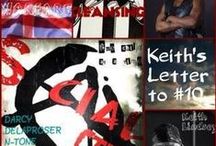
Anti-Irish sentiment (also known as Hibernophobia, from Hibernia, the Latin name for Ireland) may refer to or include persecution, discrimination, hatred or fear of the Irish as an ethnic or national group, whether directed against Ireland in general or against Irish immigrants and their descendants in the diaspora.
It is traditionally rooted in the medieval period, and is also evidenced in Irish immigration to other countries like the United States, Canada and the United Kingdom. Anti-Irish feeling can include both social and cultural discrimination within the island of Ireland itself, such as sectarianism or ethno-political conflicts in The Troubles of Northern Ireland.
Discrimination and racism towards Irish Travellers, an Irish minority group, is evident in both the Republic of Ireland[1][2] and the United Kingdom.[3] Such racism is open and can be compared to that experienced by the Irish diaspora in the 19th century, with the hanging of signs in private establishments in Ireland stating "No Travellers" in the same style as "No Irish Need Apply".[4][5] The European Parliament Committee of Enquiry on racism and xenophobia found them to be amongst the most discriminated-against ethnic groups in Ireland[6]
19th century
Anti-Irish racism in Victorian Britain and 19th century United States included the stereotyping of the Irish as alcoholics, and implications that they monopolised certain (usually low-paying) job markets.[citation needed] They were often called “white Negroes." Throughout Britain and the U.S., newspaper illustrations and hand drawings depicted a primordial "ape-like image" of Irish faces to bolster evolutionary racist claims that the Irish people were an "inferior race" as compared to Anglo-Saxons.[10]Similar to other immigrant populations, they were sometimes accused of cronyism and subjected to misrepresentations of their religious and cultural beliefs. The Irish were labelled as practising Pagans and in that time (19th century), anyone not being a "Christian" in a traditional British sense was deemed "immoral" and "demonic". Catholics were particularly singled out, and indigenous folkloric and mythological beliefs and customs were ridiculed.[11]
Nineteenth-century Protestant American "Nativist" prejudice against Irish Catholics reached a peak in the mid-1850s when the Know Nothing Movement tried to oust Catholics from public office. Much of the opposition came from Irish Protestants, as in the 1831 riots in Philadelphia, Pennsylvania.[12]
During the 1830s, riots broke out in rural areas among rival labour teams from different parts of Ireland, and between Irish and "native" American work teams competing for construction jobs.[13]
Irish Catholics were isolated and marginalised by society. Both ministers and priests discouraged intermarriage between Catholics and Protestants. In addition, the creation of a parochial school system and numerous colleges affiliated with the Church tended to compound rather than alleviate anti-Catholic discrimination.[14]
After 1860 many Irish sang songs about signs reading "HELP WANTED – NO IRISH NEED APPLY"; these signs came to be known as "NINA signs." (This is sometimes written as "IRISH NEED NOT APPLY" and referred to as "INNA signs"). These signs had a deep impact on the Irish sense of discrimination.[15]

The New York Times want ad 1854, containing "No Irish need apply".[15]
Historians have hotly debated the issue of anti-Irish job discrimination in the United States. Some insist that the "No Irish need apply" signs were common, but others such as Richard Jensen argue that anti-Irish job discrimination was not a significant factor in the United States, these signs and print advertisements being most commonly posted by the limited number of early 1
http://en.wikipedia.org/wiki/Anti-Irish_sentiment

Nicely covered and fine bit of writing. Slainte.
ReplyDeleteTá fáilte romhat John O'Neill
ReplyDeleteWell written article. Many in America don't know the racism/discrimination against the Irish occurred.
ReplyDeleteSadly majority of America do not know their own history.